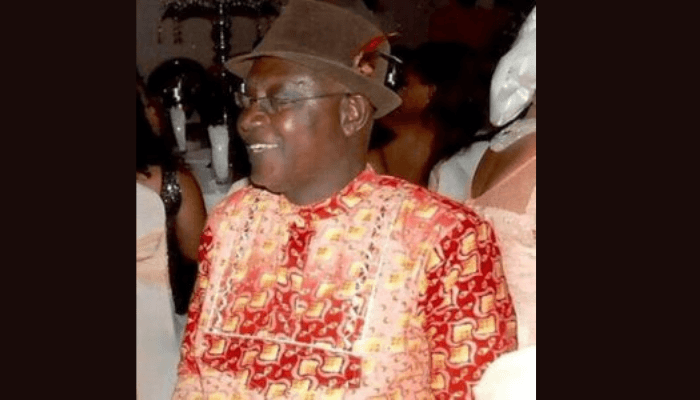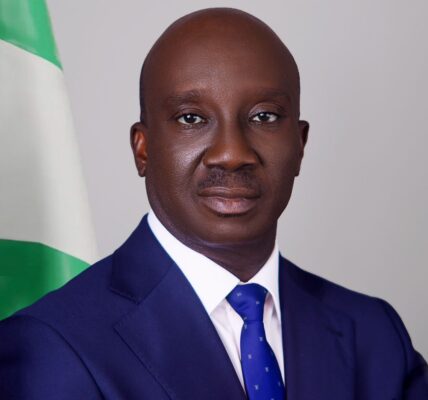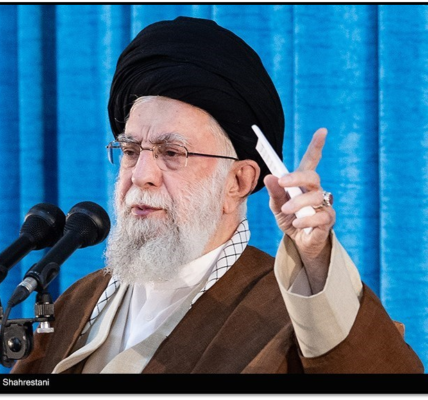By Fred Itua
Ordinarily, such baseless commentaries would not merit a response. However, Ikechukwu Amaechi’s recent piece attacking Governor Monday Okpebholo of Edo State crosses the line from critique to personal vilification, compelling a rejoinder. In an age where substance in governance should take precedence over spectacle, it is disappointing to see Amaechi stoop to unwarranted attacks based on a fleeting moment during the Governor’s 2025 budget presentation. Far from constructive criticism, the piece devolves into a series of ad hominem arguments, diverting attention from the substantive issues of governance to irrelevant theatrics.
Governor Okpebholo’s administration inherited a State ravaged by years of neglect under the previous administration of Godwin Obaseki. Edo State’s roads have crumbled, public services have deteriorated, and trust in governance has waned. Yet, within weeks of assuming office, the Governor has demonstrated a commitment to tackling these challenges head-on.
The 2025 budget, titled Edo Rising: Rebuilding for a Prosperous Future, charts a bold and transformative course for the state, prioritizing infrastructure renewal, job creation, and economic growth. This is the substance that should command our attention, not the governor’s momentary slip during the presentation.
It is troubling that Amaechi’s critique reduces governance to a performance art, implying that leadership hinges on oratorical flair. History refutes this notion unequivocally. Some of the greatest leaders have not been great speakers. George Washington, revered as the father of the United States, was known for his reserved nature rather than his speeches. Angela Merkel, whose steady leadership guided Germany through numerous crises, was often criticized for lacking charisma, yet her actions defined her legacy.
Governor Okpebholo, like these leaders, understands that governance is about results, not rhetoric. His budget presentation was not about grandstanding but about laying out a vision to rebuild Edo State.
Amaechi’s insinuation that the Governor’s momentary lapses reflect incompetence is not only unfair but intellectually lazy. Budget presentations involve detailed figures and projections, and even the most seasoned professionals can stumble under the pressure of public scrutiny.
What truly matters is the content of the budget itself—a document that offers a comprehensive plan to address Edo State’s pressing challenges. The Governor has prioritized the rehabilitation of decayed infrastructure, with a significant allocation for road construction and urban renewal projects. This focus on infrastructure is critical for spurring economic growth and improving the quality of life for Edo’s citizens.
The budget also tackles the State’s over-reliance on federal allocations by introducing innovative revenue-generation measures. The Governor’s plan to digitize tax systems and formalize the informal sector demonstrates a forward-thinking approach to increasing internally generated revenue (IGR).
This is a significant departure from the complacency of the previous administration, which failed to address Edo’s fiscal vulnerabilities. Governor Okpebholo’s administration is targeting an ambitious increase in IGR from N62 billion to over N100 billion annually by 2028—a bold but achievable goal given State’s economic potential.
Amaechi’s attempt to question the Governor’s academic qualifications is another baseless attack that distracts from meaningful debate. Governor Okpebholo’s educational credentials have been publicly verified, and his career trajectory speaks to his competence. Resorting to innuendo and unverified claims about his academic background is both irresponsible and unbecoming of a journalist. Such tactics do nothing to advance the public good and only serve to muddy the waters of constructive discourse.
What makes Amaechi’s piece particularly disingenuous is its complete disregard for the legacy of neglect left by the previous administration. Under Godwin Obaseki, Edo State’s infrastructure deteriorated, public services were neglected, and governance lacked transparency. Governor Okpebholo has inherited these systemic challenges, yet instead of lamenting the state of affairs, he has chosen to act decisively.
His administration’s immediate priorities include auditing the civil service to eliminate ghost workers, addressing financial leakages, and restoring critical infrastructure. These actions signal a leadership style rooted in pragmatism and accountability.
Furthermore, the Governor has shown a clear commitment to empowering Edo’s youth through job creation and skill development. The budget allocates substantial resources to training programs, vocational education, and entrepreneurship initiatives aimed at reducing unemployment.
With an ambitious target of creating 200,000 jobs in 2025, the administration is addressing one of the state’s most pressing issues with tangible solutions. This focus on human capital development underscores the Governor’s vision for a prosperous Edo where every citizen has the opportunity to thrive.
Amaechi’s article also fails to acknowledge the Governor’s emphasis on transparency and accountability. The establishment of an Economic Transformation Delivery Unit within the Governor’s Office to monitor project implementation is a testament to this commitment. By ensuring that public funds are used efficiently and projects are delivered on time, the Governor is rebuilding trust in government—an essential step towards sustainable development.
It is regrettable that instead of engaging with these substantive issues, Amaechi chose to dwell on superficialities. His piece, far from being an incisive critique, comes across as an attempt to distract from the Governor’s achievements and potential. Leadership should be evaluated on the basis of vision, action, and impact, not on fleeting moments of imperfection during a speech.
The people of Edo State deserve better from some media hirelings. Public discourse should elevate debates, not descend into petty attacks. Constructive criticism is invaluable in a democracy, but it must be rooted in facts and focused on advancing the public good. Amaechi’s piece does neither. It seeks to sensationalize rather than inform, to belittle rather than build.
Governor Okpebholo’s administration has made a strong start despite inheriting a challenging legacy. The 2025 budget is a blueprint for recovery and progress, addressing critical issues with bold and actionable policies. The focus now should be on supporting these efforts and holding the administration accountable for its promises—not on undermining its credibility with baseless critiques.
In conclusion, let us shift our attention to what truly matters: the work of rebuilding Edo State. Governor Okpebholo’s leadership should be judged not by his eloquence but by his effectiveness, not by his words but by his deeds. The people of Edo deserve a government—and a public discourse—that prioritizes progress over performance. It is time to move beyond the distractions and focus on the future of our great state.
Fred Itua is the Chief Press Secretary to Edo State Governor.





